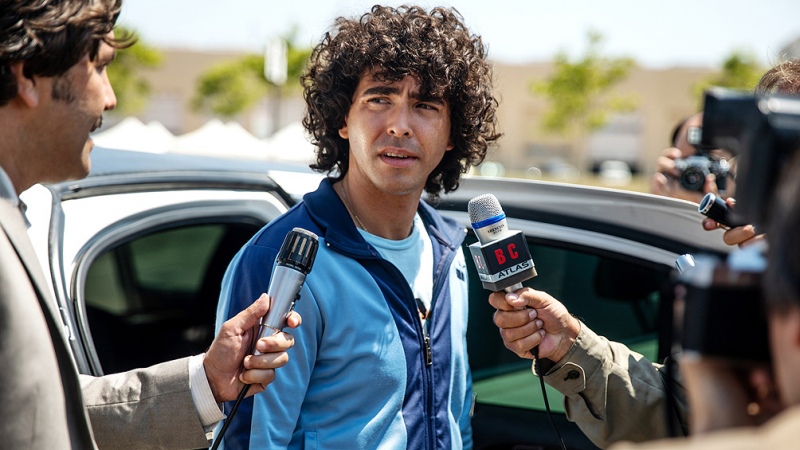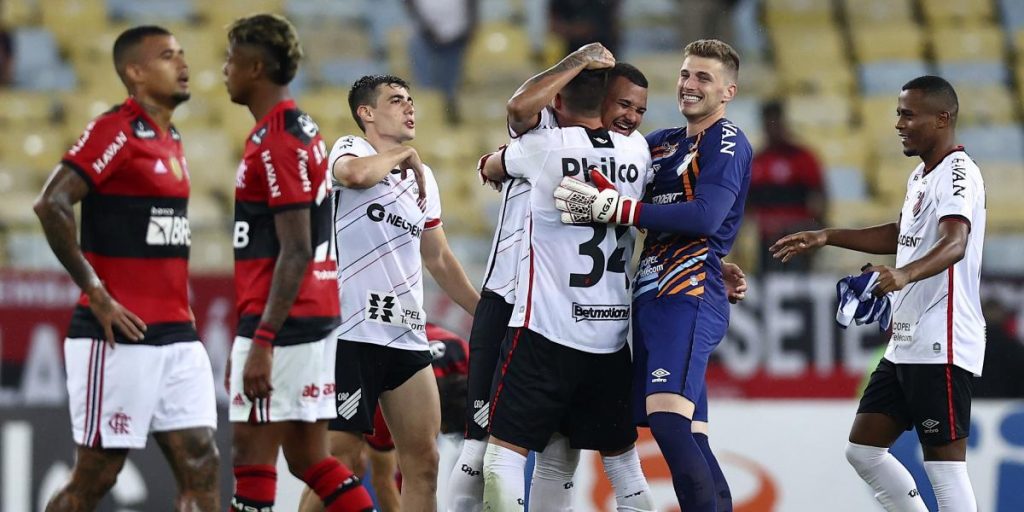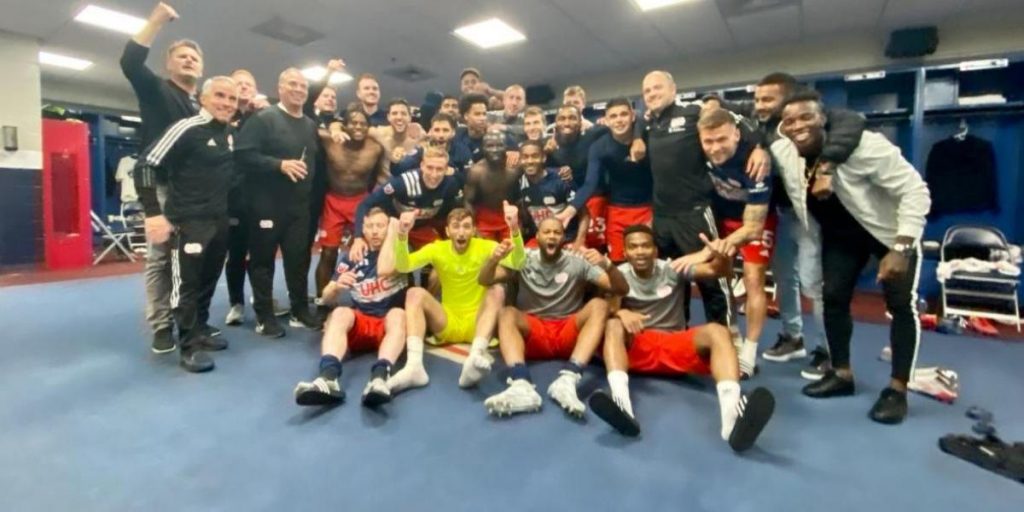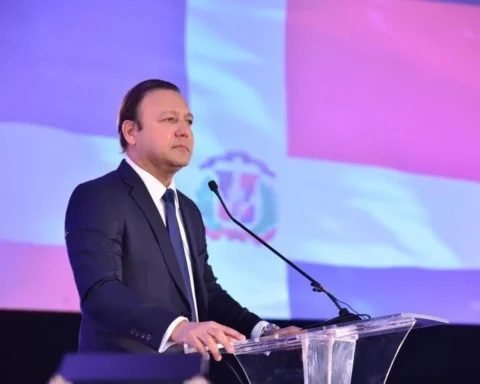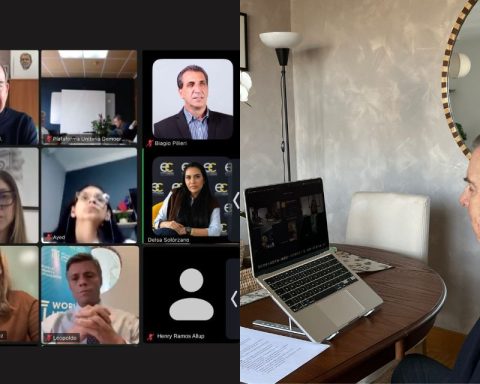Nazareno Casero, like Maradona, in the middle of the 80s.
“Maradona: Blessed dream”, The great bet of Amazon Prime Video that this virnes premieres its first five episodes on that streaming platform, it is proposed, with a cast of great figures and a narrative that spans more than four decades of Diego’s life, to portray the intimate roller coaster and professional of the “most human god we could have”.
Is about “to know the moments that were necessary to reach his moments of glory, all that he had to go through, his sorrows, the effort and what he sacrificed”, specify in dialogue with Tlam Homemade Nazareno, one of the actors who embody the sports hero in this blockbuster of ten episodes of one hour each disembarking on the eve of what would have been his 61st birthday.
Is that next to the small Juan Cruz Romero -like a young “Fluff” -, to Nicols Goldschmidt and the recognized Juan Palomino, the quartet of interpreters is in charge of bringing Maradona to the screen through different timelines that make up the hectic career of who, with all his flats, became an absolute idol of Argentine popular culture.

Juan Palomino, the adult Maradona, in the second half of the 90s.
His humble origins in Villa Fiorito and the jump from his pastures to the “Cebollitas”, where he started his way to soccer heroism in which so many revolutionary achievements as scandals occurred, are nuanced in this plot written by the Cordoba Alexander aimetta -also director and showrunner of the series- together with Guillermo Salmern and Silvina Olschansky (“El marginal”), because of the family ties and the contexts that shaped his irreverent and seductive personality.
Therefore, in the company of the immense archival work, makeup and special effects of the series, this proposal is not afraid to scrutinize his loves, fears and anger and to include images that paint the Argentina from which the star was nurtured in his days in Argentinos Juniors and Boca, prior to his transfer to European payments.
In this sense, the unavoidable framework of the last civic-military dictatorship that in 1976 opened one of the most painful chapters in national history, with the horror of the clandestine detention centers and the Malvinas War, is present not only to establish the environment for international audiences who access the strip but “for the new generations”, who will be able to “understand Maradona in that political, social and economic context that is central” in its history, Palomino explained.

Juan Cruz Romero, or when Diego was Pelusa
“That identity is also embodied as a product of the return of Peronism and its fall, and the dictatorship. Disappearances, murders and the Mothers of Plaza de Mayo are a great combo that speaks of Argentine society. Maradona is a part of that history, and I believe that it is good that the world knows that he responds to that set of elements “said the actor.
This is how a story approved by Maradona himself before his death in November of last year is constructed, which goes back and forth in time and has the added value of having been shot in the real settings that Diez passed through, including the stadiums where he shone and the houses in the port neighborhoods of Paternal and Villa Devoto where he lived.
And to add greater appeal to this Amazon series -which co-produced the project with the Mexican company BTF Media-, “Sueo bendito” has to its credit a cast of renowned figures who give life to their environment: Mercedes morn and Rita Cortese (Doa Tota), Pepe Monje and Claudio Rissi (Mr. Diego), Laura Esquivel and Juliet Cardinali (Claudia Villafae), Leonardo Sbaraglia and Jean Pierre Noher (Guillermo Coppola), Peter Lanzani (Jorge Cyterszpiller), Marcelo mazzarello (Carlos Bilardo) and Daro grandinetti (Csar Menotti) are some of them.
“What we have is the story that he told, that Diego wanted to be told, that is already a blessing, and I think the public will appreciate it.”“
Homemade Nazareno
Before its official landing on streaming, with episodes 6 and 7 to premiere on November 5 and the rest on a weekly basis, the series will have an exclusive preview this Thursday at 10 p.m. on air TV in El Nueve. Within hours of the expected debut, Casero, Palomino and Goldschmidt -the adolescent Diego- spoke with this agency about the production.
Tlam: In addition to the challenge of impersonating Maradona, what aspects of the project were most interesting to you when approaching the project?
Nicols Goldschmidt: Humanity, to think about this aspect beyond the great achievements that we all know about it, to be able to know those more everyday aspects and to go a little bit to spy on certain possible situations, imagined, for me it was super attractive. To be able to humanize this idol a little, which is both for us and for the whole world.
Nazareno Casero: I think it’s good because we are going to be able to see the man behind the legend, the human who is practically a god, the most human we could have.

Nicols Goldsmith, another version of the Ten
Juan Palomino: In this era of new technologies, it seems important to me that young people can understand the why of the Maradona phenomenon, and the why of Maradona in certain circumstances. Both Nico and Nazareno pose the game very well in the series, they interpret what that identity represents in different times.
T: How did you work together to give continuity to the character in its different stages?
JP: The collective work was very important, each one individually began his frantic search, explored his own self, and together we completed the image of that puzzle that is Diego Maradona.
NC: There was personal work but also joint work, which was to be able to take the same walk, the same way of standing, breathing, the angle at which to place the head, that must be tied because although there are hundreds or thousands of different Diegos It is very important that there is an essence that accompanies the character throughout the series.
T: After Maradona’s death last November, did your views change about the impact the series is going to have? What are your expectations?
NC: I don’t draw Diego’s death as a milestone in relation to the series itself, but it seems to me that the audience is going to stir the emotions a bit, and it will become strong from that side. What we have is the story that he told, that Diego wanted to be told, that is already a blessing, and I think the public will appreciate it.
NG: Maradona was a creator of fantasies, a tremendous artist, and I hope that with our work in some way we can help keep that flame alive, although he does not need help. I think people are going to be deeply moved, at least that’s what happened to me when I saw the work of all the colleagues who did this work. I was deeply moved and I think that is what will happen with the public, I trust that it will be so.
